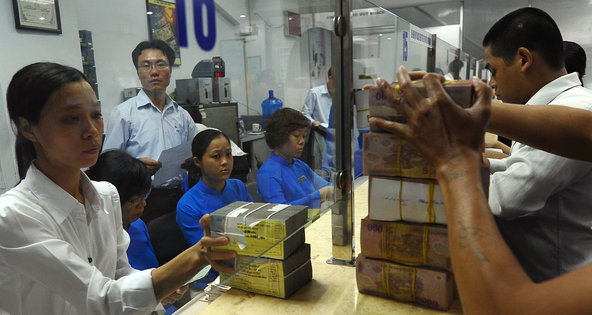What they uncovered, they said Monday, was a conspiracy involving tens of millions of dollars and directed by senior executives at the British drug giant GlaxoSmithKline.
Investigators said that for years, senior executives at the company joined with travel agencies and consulting firms in China to funnel bribes to doctors, hospitals, medical associations, foundations and government officials.
The payoffs, investigators said, helped bolster drug sales and allowed GlaxoSmithKline, also known as GSK, to sell its products for higher prices in China.
At a news conference in Beijing, the authorities accused senior executives at GSK of organizing fictitious conferences, overbilling for training sessions and accepting kickbacks in the form of cash and luxury travel.
In some cases, the authorities said, travel companies eager to sign long-term deals with GSK hired young women to engage in what officials called “sexual bribery” with managers at the drug maker.
“It’s like a criminal organization — there’s always a boss,” Gao Feng, head of the economic crime unit of the Chinese Ministry of Public Security, said at the news conference. “And in this case, GSK is the boss.”
The revelations come just days after the police announced that GSK managers had confessed to engaging in bribery and tax fraud.
On Monday, the government said four senior executives at GSK were being detained, including the head of the drug maker’s legal department and two vice presidents and the head of business development in China. The four named are all Chinese nationals, the police said.
Mark Reilly, the head of GSK’s operations in China, a British national, recently left the country, the police said. The departure took place shortly after investigators raided the company’s offices.
“This is a very serious allegation, and the chief of China has left China,” Mr. Gao said.
The investigation is a huge embarrassment for GSK, which recently fired the head of its research and development department in Shanghai for misrepresenting data in a paper he co-wrote in 2010.
The company also said earlier that it had conducted an internal investigation into its China operations this year after a whistle-blower said bribery had been used to bolster drug sales. The company said it had found no evidence of wrongdoing or bribery in its China operation.
But on Monday, GSK issued a statement from London indicating grave worry: “We are deeply concerned and disappointed by these serious allegations of fraudulent behavior and ethical misconduct by certain individuals at the company and third-party agencies. Such behavior would be a clear breach of GSK’s systems, governance procedures, values and standards. GSK has zero tolerance for any behavior of this nature.”
The statement went on: “GSK shares the desire of the Chinese authorities to root out corruption. These allegations are shameful and we regret this has occurred.” The company said it would cooperate with the authorities in China and take immediate action to stop dealings with travel agencies that may have committed fraud.
At the news conference Monday in Beijing, the authorities said that the investigation was continuing and that the case involved scores of travel agencies as well as other multinational corporations that also may have fabricated travel bookings.
By detailing what they called GSK’s fraud, the investigators suggested it was a common business tactic that effectively cheats the purchasers of drugs.
“From our investigation, we found that bribery was part of the strategy of the company,” Mr. Gao said of GSK.
The investigation is certain to heighten concerns among other global drug makers, some of which are under growing scrutiny from regulators in the United States and elsewhere over the incentives they give to doctors or clients.
Some of the toughest penalties could come in the United States, because most major drug makers are subject to the U.S. Foreign Corrupt Practices Act, which bars companies from making payoffs to government officials in foreign countries in exchange for business.
Kim Nemirow, a Hong Kong-based attorney at the U.S. law firm Ropes Gray, said global drug companies face stiff challenges in China: their sales agents deal mostly with Chinese government officials because much of the health care sector is controlled by the state.
“The government is pervasive in all aspects of this industry — the doctors, the pharmacies, the distributors, the state-owned hospitals. And that means what they do could come under the U.S. F.C.P.A.,” Ms. Nemirow said, referring to the corrupt practices act.

Article source: http://www.nytimes.com/2013/07/16/business/global/glaxo-used-travel-firms-in-bribery-china-says.html?partner=rss&emc=rss
